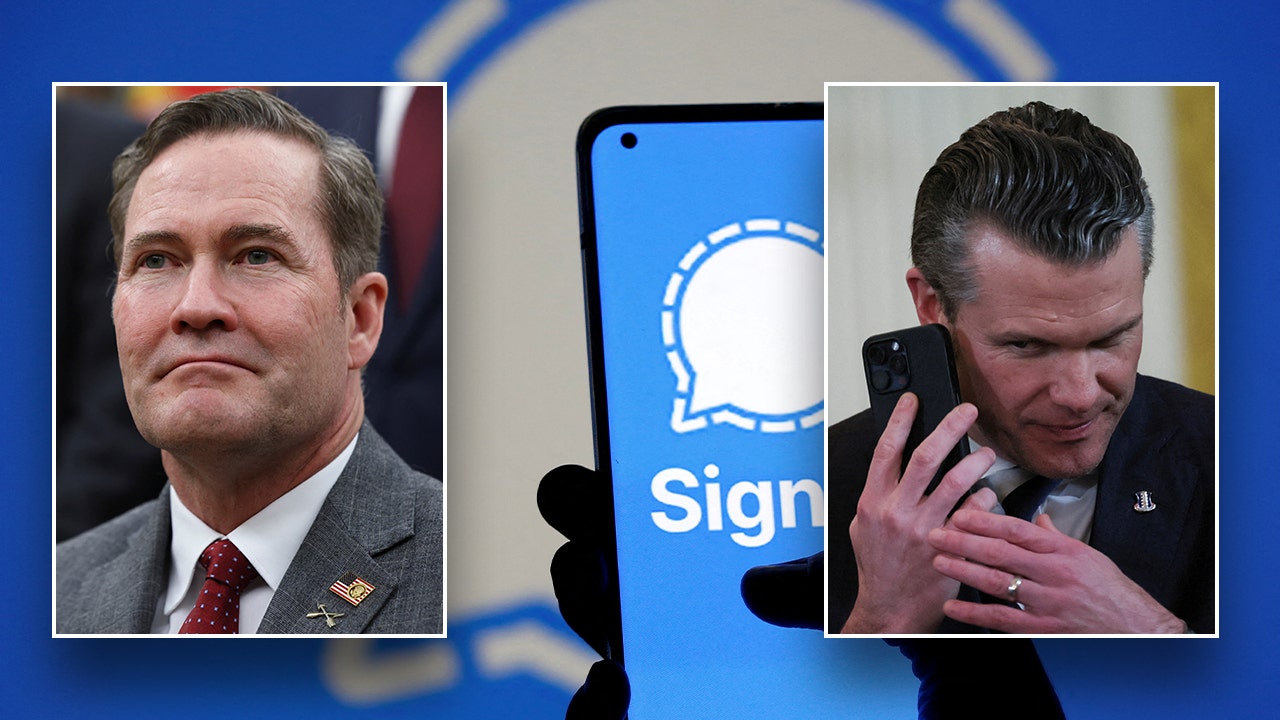Trump admin declares the Atlantic’s Signal article a ‘hoax’ after it drops ‘war plans’ rhetoric

Trump administration officials are pushing back against claims made by the Atlantic magazine that they were discussing “war plans” in a Signal group chat involving the nation’s top national security leaders. White House press secretary Karoline Leavitt took to social media to declare that the Atlantic had “conceded” that the article did not contain any actual war plans. She accused the author of the article of being a “Trump-hater” known for sensationalizing stories.
National security advisor Mike Waltz also chimed in, stating that the chat did not contain any specific locations, sources, or methods, and that foreign partners had already been notified of the planned strikes in Yemen. He emphasized that President Trump was focused on protecting America and its interests.
The Atlantic’s article, titled “The Trump Administration Accidentally Texted Me Its War Plans,” raised eyebrows as it revealed details of the chat involving high-ranking federal officials. The editor-in-chief of the Atlantic was also included in the group chat, which discussed an upcoming strike in Yemen against terrorist forces.
Despite the uproar, Trump administration officials maintain that no classified information was shared in the Signal correspondence. They argue that the chat did not contain any sensitive information that could compromise national security.
In a follow-up article, the Atlantic included direct texts from the Signal chat but refrained from using the term “war plans” in its headline. Instead, they referred to the texts as “attack plans.” The administration insists that the original characterization of the chat as containing war plans was misleading and inaccurate.
Secretary of Defense Pete Hegseth took to social media to express his frustration with the Atlantic’s coverage. He criticized the publication for peddling hoaxes and defended the administration’s handling of the situation. He emphasized that the chat did not reveal any crucial information that could jeopardize the safety of American personnel.
The use of Signal for official communications has come under scrutiny, with the Department of Defense issuing guidelines on its usage. While Signal is approved for some government use, officials are cautioned against sharing non-public information on the platform. A best practice guide from the Cybersecurity and Infrastructure Security Agency advises highly targeted government officials to use Signal for secure communications to protect against potential hackers.
The incident has sparked a debate over secure communications and the risks associated with using messaging apps for sensitive information. President Trump has defended national security advisor Mike Waltz, stating that he will not be fired over the incident. He downplayed the significance of the chat and emphasized that it had no impact on the planned strike in Yemen.
Overall, the Trump administration is pushing back against claims of sharing classified information in the Signal chat and is focusing on protecting national security interests. The controversy surrounding the incident highlights the challenges of maintaining secure communications in an increasingly digital world.




